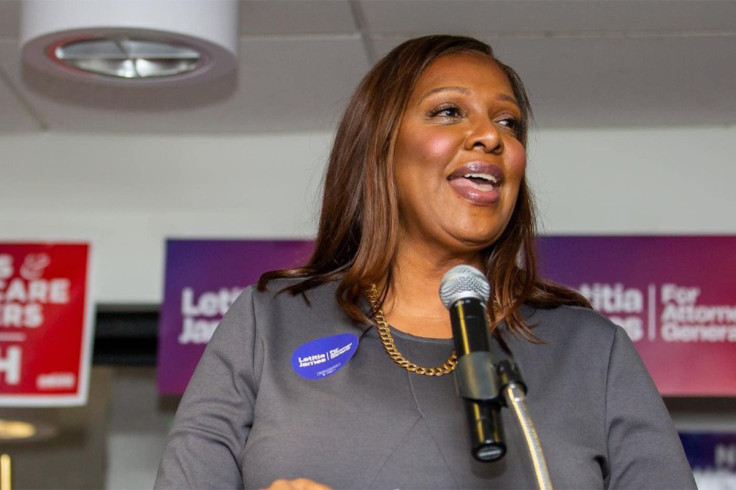Letitia James Indictment: Is Trump Pulling the Strings Behind the Bank Fraud Case?
The indictment stems from a 2020 mortgage on a Virginia property

New York Attorney General Letitia James was indicted on 9 October 2025 on federal bank fraud charges in Virginia, raising immediate questions about the timing, motives, and political impact of the case.
The indictment stems from allegations that James misrepresented a Norfolk, Virginia property on mortgage paperwork in 2020. She is accused of falsely stating that the property would be her second home, which allegedly allowed her to secure more favourable loan terms.
James, who has long been one of Donald Trump's most outspoken critics, is scheduled to appear in court on 24 October. The case has ignited a nationwide debate over whether the indictment reflects a legitimate criminal case or a politically motivated prosecution.
Bank Fraud Allegations and Charges Explained
According to the indictment, James allegedly obtained lower interest rates on a mortgage by classifying the Norfolk property as a second home rather than an investment property. Prosecutors claim she later rented out the property, violating the terms of the loan agreement and saving approximately $19,000 (approximately £14,047) over the life of the loan.
She faces two federal charges: bank fraud and making a false statement to a financial institution. The grand jury in the Eastern District of Virginia returned the indictment following a referral from the Federal Housing Finance Agency earlier this year.
James has denied the allegations and called the charges politically motivated and 'baseless'. If convicted, she could face substantial fines, loss of her legal position, and potential prison time.
Trump's Longstanding Feud with Letitia James
The legal case cannot be separated from the political history between James and Trump. James previously sued Trump in a civil fraud case in New York, which led to a major financial judgment against the president's business empire.
Trump has repeatedly attacked James in public speeches and on social media, referring to her as a 'crook' and urging federal prosecutors to act against her.
The case was presented to the grand jury by US Attorney Lindsey Halligan, a prosecutor perceived as politically aligned with Trump. Reports indicate that career prosecutors were sidelined, fuelling speculation that the indictment may have been influenced by political pressure.
Legal experts say this overlap between legal action and political rivalry has intensified the public scrutiny of the case.
Legal Defence and Court Strategy
James' legal team argues that any inconsistencies in the mortgage paperwork were administrative errors, not criminal intent. Prosecutors must prove 'scienter', meaning James knowingly and deliberately made false statements. Her defence is expected to challenge the appointment of Halligan and argue that political interference tainted the process.
The case will be overseen by Judge Jamar Walker, who is expected to rule on early procedural motions in the coming weeks. The outcome of those motions could determine how much internal Department of Justice communication will be disclosed to the defence, potentially shedding light on whether political direction played a role.
What Happens Next in the Legal Battle
James is expected to appear before the Norfolk court later this month. Her legal team is likely to file pre-trial motions challenging the basis of the indictment and seeking disclosure of prosecutorial communications.
Observers say the case could become a test of prosecutorial independence in the United States. The outcome is expected to have political and legal implications, not only for James but for the broader debate over how the justice system is used in politically charged cases.
© Copyright IBTimes 2025. All rights reserved.




















